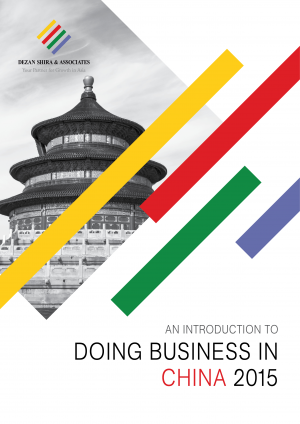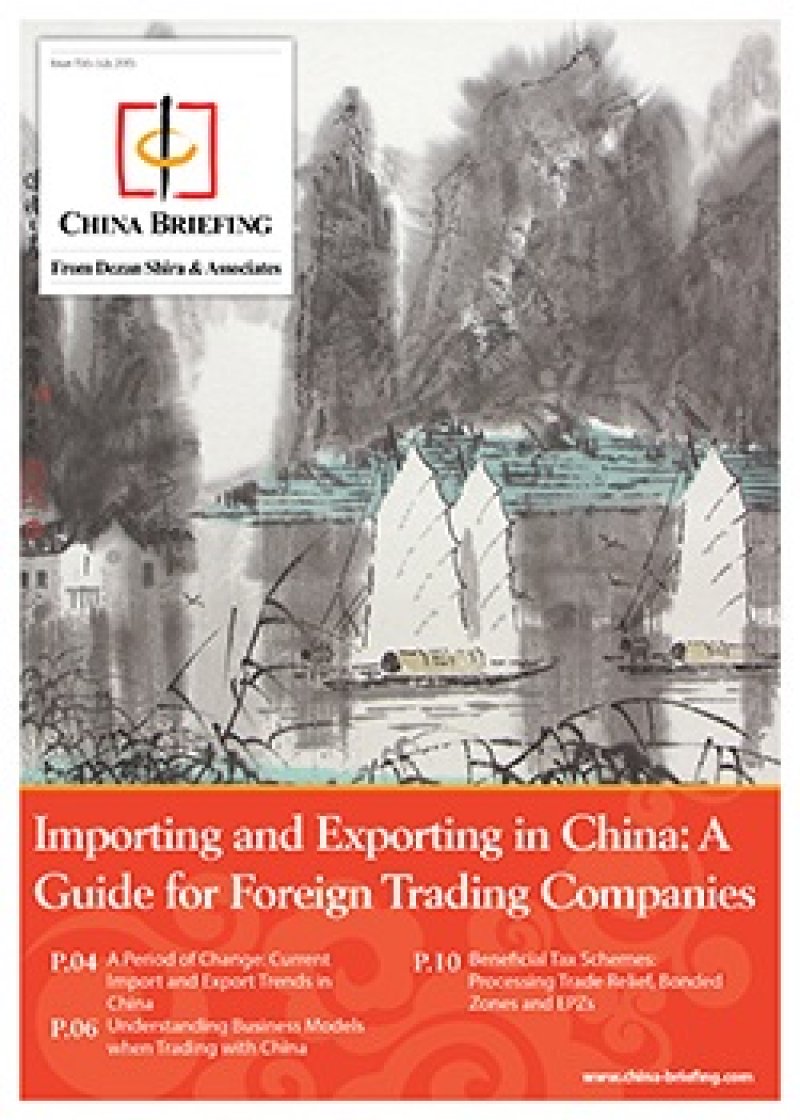Planting for the Future: Investing in China’s Crop Seed Industry
As any visitor to the country is quick to notice, China is a land of foodies. It is common practice in China to knowingly prepare or order too much food for friends and guests. Food is intentionally wasted as a way for hosts to signal that they will not let their guests go hungry. So much food is being wasted, in fact, that the government has launched a campaign to discourage the practice.
And for good reason. With 22 percent of the world’s population, China only holds 10 percent of the planet’s arable land. Measures from the Chinese government to combat the issue range from buying up arable land abroad to researching new agriculture techniques. A key question is how to grow more food with less land. This is where crop seeds come into play.
The Chinese Crop Seed Market
With an estimated size of US$17 billion, China is the largest crop seed market after the United States. Roughly 50 percent of the market is held by foreign companies. The state-owned companies that are active in the market largely sell old varieties of specific vegetables, although these have begun to develop new varieties in recent years.
Since the 1980s, Chinese research institutes have begun to sell seed varieties to local farmers as well. More recently, private seed companies have rapidly started sprouting up. As such, from the supply side the market is fragmented into over 5000 small players. For foreign companies looking to break into the Chinese market, some of these would make for interesting take-over targets.
 RELATED: Pre-Investment and Entry Strategy Advisory
RELATED: Pre-Investment and Entry Strategy Advisory
Possibilities for Foreign Investment
Given the food safety concerns at stake, crop seeds are a politically sensitive matter. As such, the production of new varieties of crop seeds remains one of the few industries where foreign investors need to have a Chinese joint venture partner in order to invest. Approval is required as well for the collection of germplasms. Foreign ownership of companies that engage in genetic modification is prohibited altogether. These restrictions have been maintained in both the 2015 version of the Catalogue for the Guidance of Foreign Investment and the more liberalized Negative List in use in the Free Trade Zones.
Under the current Seed Law 2013, separate licenses are required for seed production and seed trading of what are termed ‘major seeds’. The five foremost major seeds are rice, corn, wheat, soybeans and cotton. In addition, the Ministry of Agriculture and its provincial branches maintain a list of other crops that are also considered major seeds.
Companies that wish to engage in seed trading need to receive the Seed Trading License prior to applying for a business license with the Administration of Industry and Commerce, or request to have their present business license amended.
In addition to a production or trading license, companies that import or export seeds need a seed import/export license as well. This is regardless of whether the seeds are classified as ‘major crops’. The State Council regulates the importation of genetically modified seed specimens separately.
Imported seeds need to meet China’s national and industry standards, otherwise they can only be used for seed production. The domestic sale of seeds that don’t meet these standards is prohibited.
New Draft Seed Law 2015
In May 2015, the Chinese government released a draft of the new Seed Law for public review. The proposed law makes several major changes to the licensing system.
For one, the production and trading licenses are merged into one license, called the Seed Production and Trading License. This license only applies to the five major crops mentioned above. The list with additional major crops appears to be abolished.
The law does, however, introduce a registration requirement for non-major crops. The Ministry of Agriculture maintains a list of these non-major crops. In this way, the new law appears to deregulate parts of the crop seed sector.
The same Seed Production and Trading License now also extends to the import and export of crop seeds, and the production and trading of genetically modified seeds.
At the same time, the draft law poses new requirements on foreign companies active on the Chinese seed market. If the law were to pass, all foreign invested companies producing or trading seeds need a Seed Production and Trading License.
In addition, a number of activities conducted by foreign entities are now subject to an approval procedure with the State Council. These include the investment, merger or acquisition of a Chinese seed company; the cooperation with a Chinese research institute; technical cooperation with a local entity, R&D activities, and the production and trading of seeds.
|
Asia Briefing Ltd. is a subsidiary of Dezan Shira & Associates. Dezan Shira is a specialist foreign direct investment practice, providing corporate establishment, business advisory, tax advisory and compliance, accounting, payroll, due diligence and financial review services to multinationals investing in China, Hong Kong, India, Vietnam, Singapore and the rest of ASEAN. For further information, please email china@dezshira.com or visit www.dezshira.com. Stay up to date with the latest business and investment trends in Asia by subscribing to our complimentary update service featuring news, commentary and regulatory insight. |
![]()
 An Introduction to Doing Business in China 2015
An Introduction to Doing Business in China 2015
Doing Business in China 2015 is designed to introduce the fundamentals of investing in China. Compiled by the professionals at Dezan Shira & Associates, this comprehensive guide is ideal not only for businesses looking to enter the Chinese market, but also for companies that already have a presence here and want to keep up-to-date with the most recent and relevant policy changes.
Importing and Exporting in China: a Guide for Trading Companies
In this issue of China Briefing, we discuss the latest import and export trends in China, and analyze the ways in which a foreign company in China can properly prepare for the import/export process. With import taxes and duties adding a significant cost burden, we explain how this system works in China, and highlight some of the tax incentives that the Chinese government has put in place to help stimulate trade.
Using China’s Free Trade & Double Tax Agreements
In this issue of China Briefing, we examine the role of Free Trade Agreements and the various regional blocs that China is either a member of or considering becoming so, as well as how these can be of significance to your China business. We also examine the role of Double Tax Treaties, provide a list of active agreements, and explain how to obtain the tax minimization benefits on offer.
- Previous Article Investing in China’s Small Household Appliances Market
- Next Article Internet Challenges & Solutions When Doing Business in China – New Issue of China Briefing Magazine











